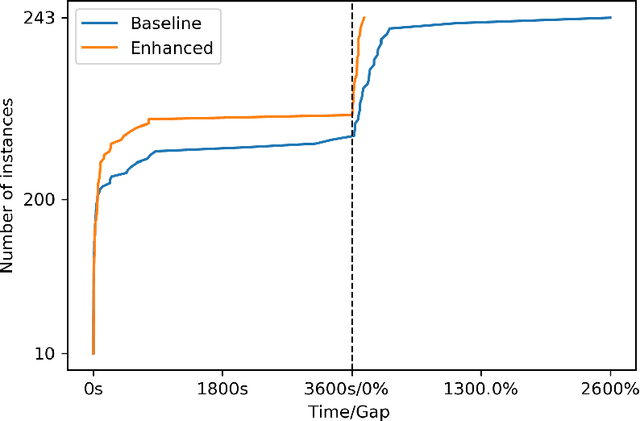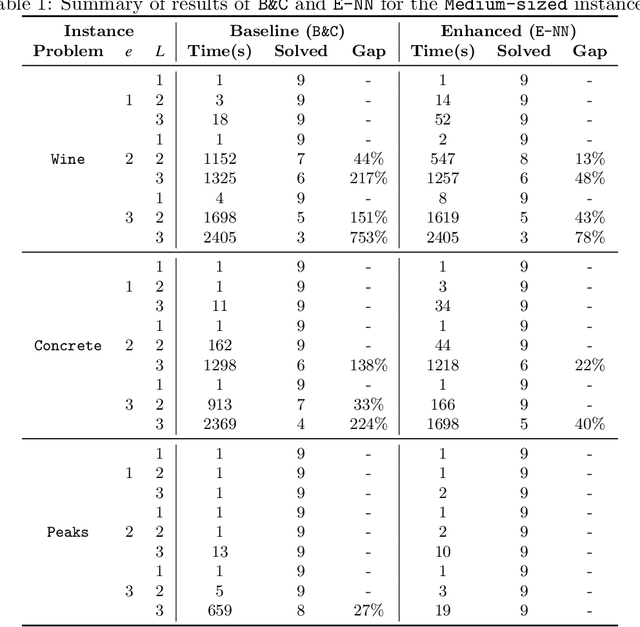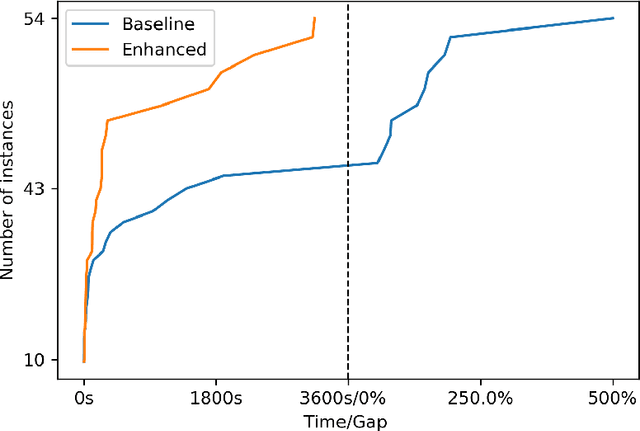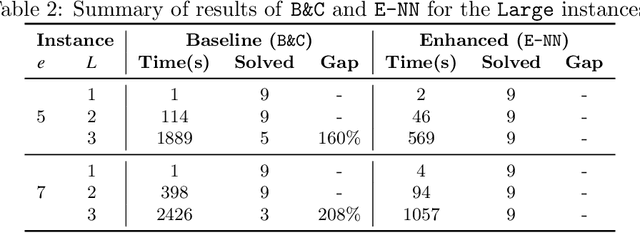Carlos Cardonha
Acceleration techniques for optimization over trained neural network ensembles
Dec 13, 2021



Abstract:We study optimization problems where the objective function is modeled through feedforward neural networks with rectified linear unit (ReLU) activation. Recent literature has explored the use of a single neural network to model either uncertain or complex elements within an objective function. However, it is well known that ensembles of neural networks produce more stable predictions and have better generalizability than models with single neural networks, which suggests the application of ensembles of neural networks in a decision-making pipeline. We study how to incorporate a neural network ensemble as the objective function of an optimization model and explore computational approaches for the ensuing problem. We present a mixed-integer linear program based on existing popular big-$M$ formulations for optimizing over a single neural network. We develop two acceleration techniques for our model, the first one is a preprocessing procedure to tighten bounds for critical neurons in the neural network while the second one is a set of valid inequalities based on Benders decomposition. Experimental evaluations of our solution methods are conducted on one global optimization problem and two real-world data sets; the results suggest that our optimization algorithm outperforms the adaption of an state-of-the-art approach in terms of computational time and optimality gaps.
Modeling Epistemological Principles for Bias Mitigation in AI Systems: An Illustration in Hiring Decisions
Nov 20, 2017

Abstract:Artificial Intelligence (AI) has been used extensively in automatic decision making in a broad variety of scenarios, ranging from credit ratings for loans to recommendations of movies. Traditional design guidelines for AI models focus essentially on accuracy maximization, but recent work has shown that economically irrational and socially unacceptable scenarios of discrimination and unfairness are likely to arise unless these issues are explicitly addressed. This undesirable behavior has several possible sources, such as biased datasets used for training that may not be detected in black-box models. After pointing out connections between such bias of AI and the problem of induction, we focus on Popper's contributions after Hume's, which offer a logical theory of preferences. An AI model can be preferred over others on purely rational grounds after one or more attempts at refutation based on accuracy and fairness. Inspired by such epistemological principles, this paper proposes a structured approach to mitigate discrimination and unfairness caused by bias in AI systems. In the proposed computational framework, models are selected and enhanced after attempts at refutation. To illustrate our discussion, we focus on hiring decision scenarios where an AI system filters in which job applicants should go to the interview phase.
 Add to Chrome
Add to Chrome Add to Firefox
Add to Firefox Add to Edge
Add to Edge